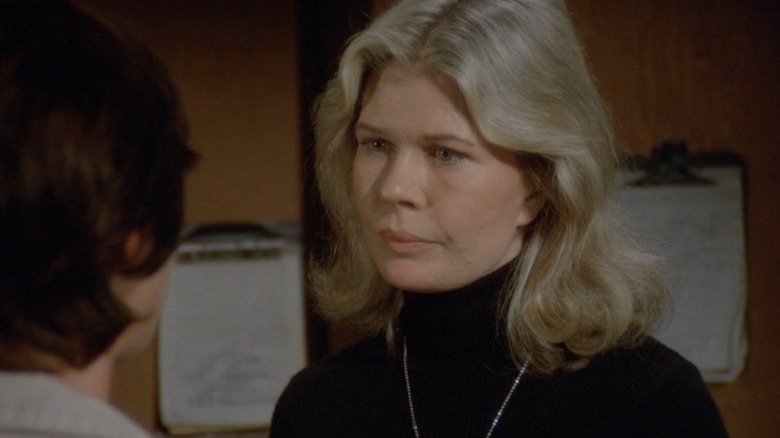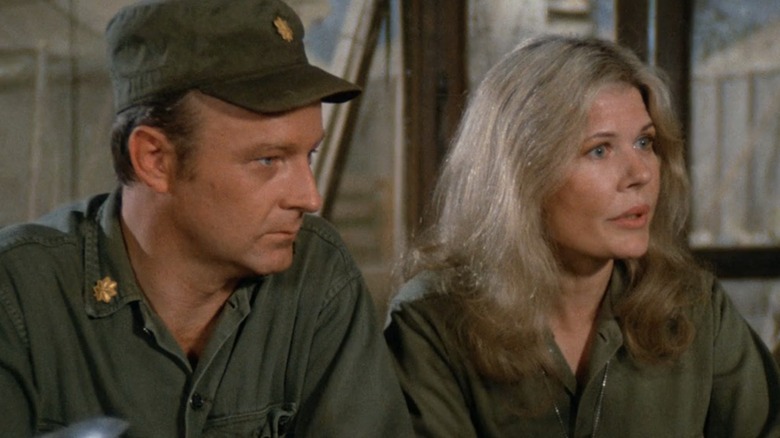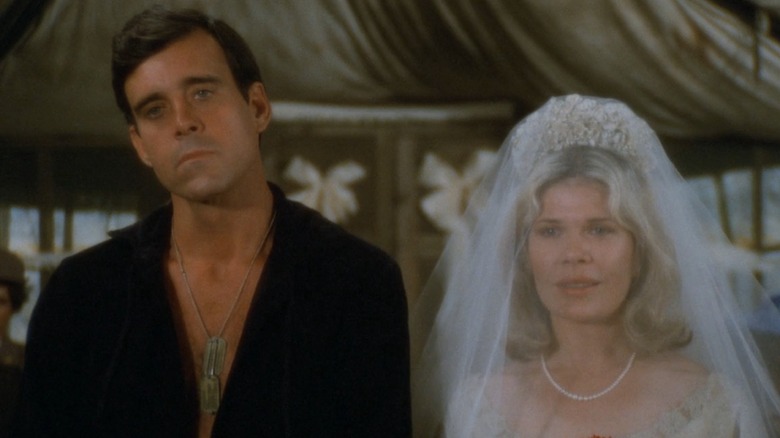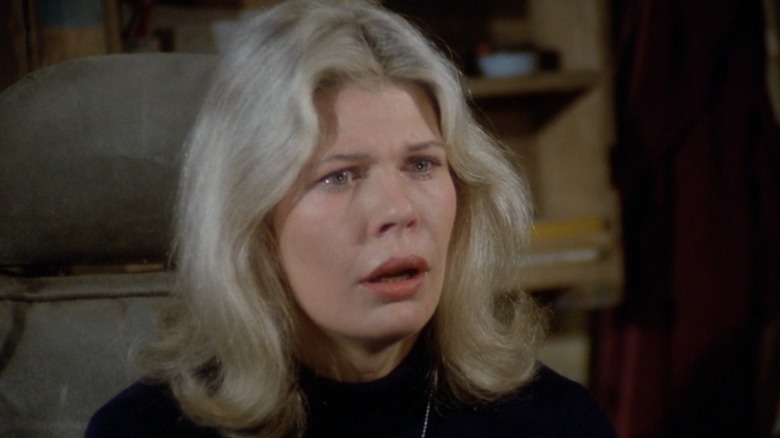M*A*S*H Star Loretta Swit Pitched Margaret's Best Story Arc Herself
Once you've seen all of "M*A*S*H," it can be tough to rewatch some earlier season episodes. The Korean War-set sitcom was heartfelt and inspired from its first season to its last, but the earlier seasons also prominently featured some kinks the show would later work out. The worst of them? The initially one-note writing of Nurse Margaret Houlihan (Loretta Swit), whose nickname Hot Lips is a good indicator of how the show felt about her early on.
In the show's early days, Margaret alternated between appearing to be a shrill stick in the mud and an amorous "other woman" for sniveling jerk Frank Burns (Larry Linville). When she was subjected to sexual harassment at the hands of our heroes, she was the butt of the joke for taking it too personally, and audiences never got much sense of her inner self. As the series began establishing its own unique tone and moving away from the Robert Altman movie that inspired it, though, Margaret slowly became one of the most vital characters. Her characterization was subtle at first, but a major relationship shake-up that began in season four put her on the path toward becoming much more than a punchline. It was a plot point that, according to Swit, series writers let her help craft herself.
Bye, Frank!
"Of course, writers are starting to get to know us better, they're starting to take from our personalities and use that and so forth," Swit recalled in an interview with OWN shared in 2017. As other actors on the show have noted, the working relationship between writers and actors was unique, allowing castmates to help shape their own character arcs. "Now, we have the freedom to say, 'Well I don't think I would say that,' you know? There was this excitement, this creativity that you don't find on every job," Swit told OWN.
The actress said that one year during a conference call, writers asked her, "Where do you see your girl going this year?" and she had a fully formed answer in mind. "I said, 'I think we have run the gamut with the relationship with Frank Burns,'" she recalled, adding, "They were writing her more intelligent, and they were writing him sillier, and the audience was having trouble finding a way to make that compatible." Frank was also married in the show, and the pair's affair functioned as a one-note bit — a repeated joke about how he would never leave his wife, Margaret would always be left hanging, and everyone at camp would act like they didn't know about it. According to Swit, there just wasn't a lot of respect in the relationship, as Margaret also didn't seem to acknowledge Frank's skill as a doctor.
A short-lived marriage helped Margaret grow
Not only did Swit pitch the breakup, but she also came up with the idea of what followed: a failed marriage to a highly decorated but aloof Lt. Colonel named Donald Penobscott (Beeson Carroll, and later Mike Henry). "I said, 'I think she goes to Tokyo and she meets somebody who outranks Frank and she falls in love and she gets engaged!'" Swit told the outlet. She recalled series co-creator Gene Reynolds asking her what happens next, then balking at the idea that Margaret would actually get married. As Swit put it: "Gene said, 'Ohhh, sweetheart, that's so permanent!' I said, 'Gene, you're divorced, how can you sit there and say that to me?'"
Eventually, Swit and the writers settled on a plotline in which Margaret, after much anticipation, marries the Lt. Colonel, only to discover he's cheating on her. Though this sounds cruel on paper, it actually leads to a moment of self-understanding for Margaret, who finally realizes she's not about to settle for someone who doesn't deserve her. Instead of continuing the marriage, Swit said, she "comes back to her life without him and realizes that she doesn't really need another person to complete her life as she had it there."
'She was busy, she was ambitious, she was caring'
"She was busy, she was ambitious, she was caring. She wanted to be the best damn nurse in Korea and that was her ambition," Swit continued. A far cry from the callously objectified "Hot Lips" we met at the beginning of the show or the militant boss figure she would often become, Margaret was now vulnerable and human — a three-dimensional member of the team who cared and was cared for by her friends.
Margaret may have gone through a singular transformation across the show's eleven seasons, but Swit has also noted that she's far from alone in that. "M*A*S*H" broke with sitcom conventions in many ways, including by allowing serious emotion to sometimes take center stage and deepen our connection to each character. In Suzy Gershman's "The Complete Book of M*A*S*H," which was published just a year after the show's 1983 finale, Swit noted: "Everyone glommed onto Margaret's changes and said, 'She's wonderful,' but what made this show work is that everyone evolved, everyone changed." Still, she was proud of Margaret, even then. "She was a character in constant flux," Swit said. "She never stopped developing."



